UN envoy to Yemen warns of a ‘devastating’ regional escalation, but points to glimmer of hope
Associated PressUNITED NATIONS — The U.N. envoy for Yemen warned Tuesday that recent developments in the Red Sea, Israel and inside the country “show the real danger of a devastating region-wide escalation” — but he also pointed to a glimmer of hope. Hans Grundberg said Yemen’s warring parties — the internationally recognized government and Houthi rebels – informed him Monday night “that they have agreed on a path to de-escalate a cycle of measures and countermeasures which had sought to tighten their grip on the banking and transport sectors.” But he warned the U.N. Security Council that seven months of escalating actions reached “a new and dangerous level last week” which saw a Houthi drone attack on Tel Aviv and Israeli retaliatory attacks on Yemen’s key port of Hodeida and its oil and power facilities. While fighting has decreased considerably since a six-month truce in 2022, Grundberg told the council that clashes have been reported along numerous frontlines this month “and we have witnessed an increase in military preparations and reinforcements.” Rivalry between the Houthis and the southern government have fueled an economic divide, with the rivals establishing separate and independent central banks and different versions of the country’s currency, the riyal. “The aim remains a unified currency, a unified and independent central bank, and a banking sector free of political interference.” Nonetheless, while Grundberg welcomed the willingness of both sides to engage on economic issues, he said, “I reiterate my warning to the council that we risk a return to full-scale war and all the predictable human suffering and regional implications that entails.” Grundberg told reporters the four points are similar to commitments the two sides made in September to engage in dialogue. Msuya said the detentions “have caused widespread fear and anxiety among humanitarian workers” and without guarantees for their safety and security, “we cannot operate at the scale required.” She also appealed to donors, saying low funding has meant that an average of just 2.9 million people received food assistance every month of the 12.9 million targeted – and many of those getting aid “are having to make do with reduced rations, around 40% of what they need.” —- Jade Lozada contributed to this report from the United Nations
History of this topic
Yemen rivals threaten to resume war as hunger and cholera worsen in the poor nation, UN envoy warns
Associated Press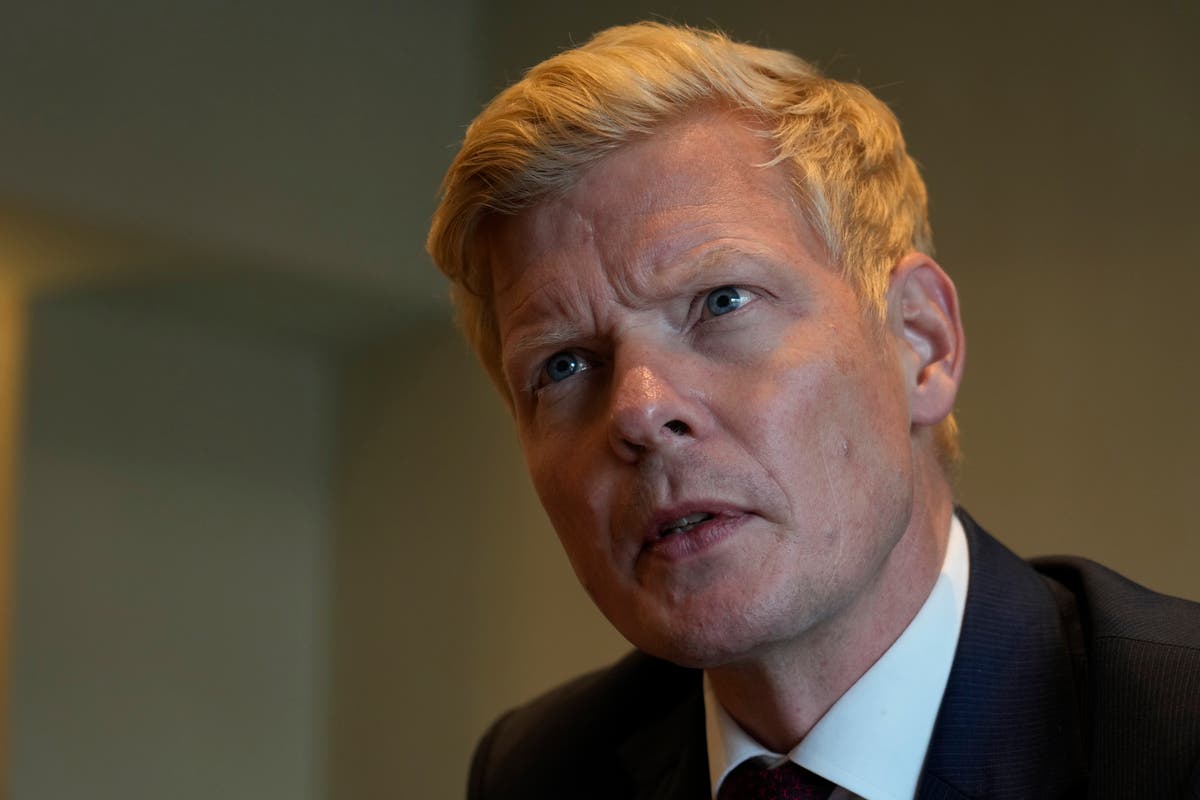
UN envoy to Yemen warns of a ‘devastating’ regional escalation, but points to glimmer of hope
The Independent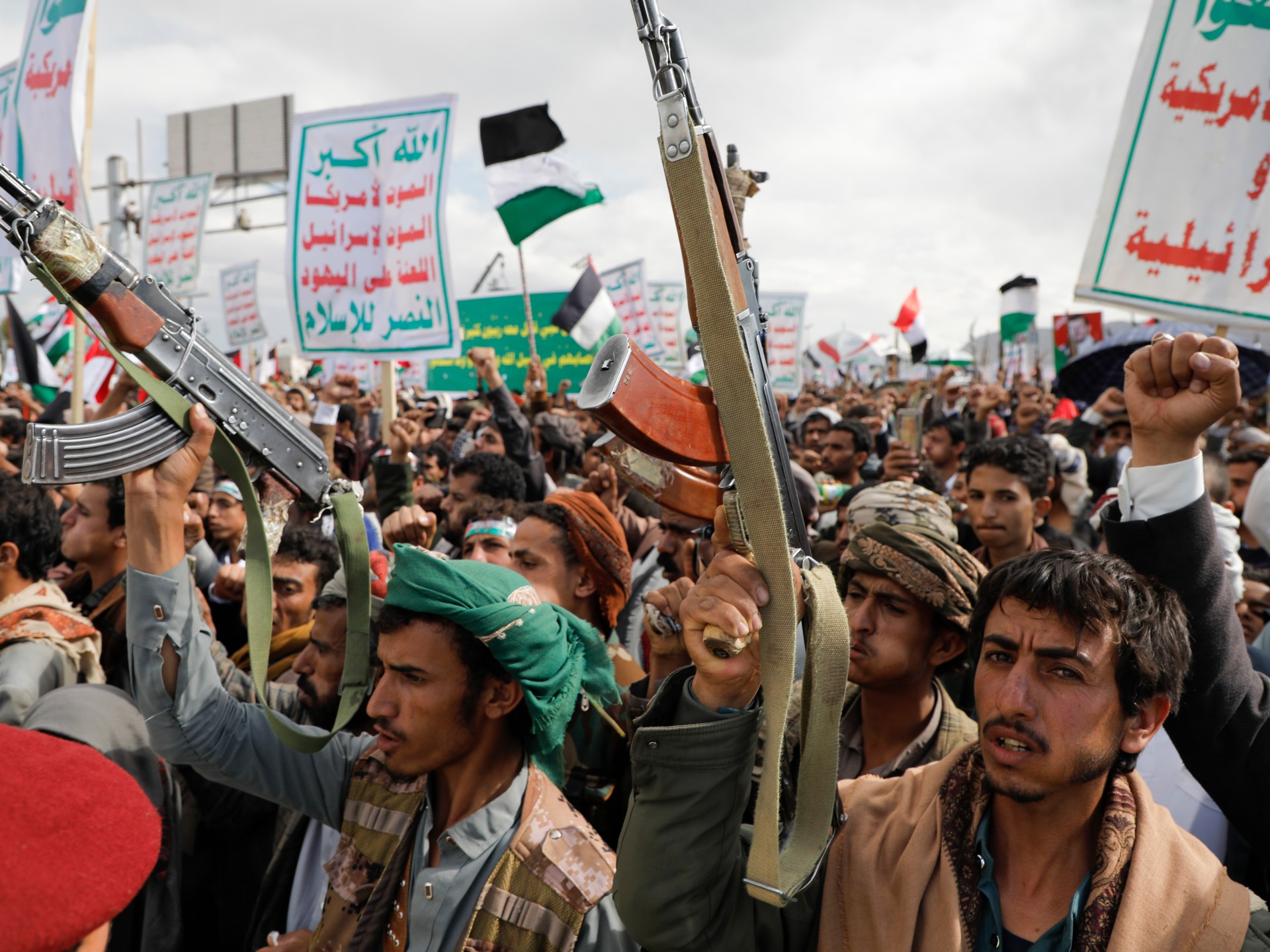
US seeks to block Houthi revenues in possible threat to Yemen truce: Report
Al Jazeera
‘Yemen at a crossroads’: Nearly 200 aid groups issue urgent funding appeal
Al JazeeraUN envoy warns Gaza war and Red Sea attacks by Houthi rebels risk propelling Yemen back into war
Associated Press
UN envoy warns of ‘dangerous’ escalation cycle in war-wracked Yemen
Al JazeeraUS to relist Yemen’s Houthis as specially designated global terrorists, AP sources say
Associated Press
UN food agency stops deliveries to millions in Yemen areas controlled by Houthi rebels
Associated PressUN envoy warns resumption of war remains threat in Yemen unless parties reach new cease-fire deal
Associated PressThreats to return to war in Yemen hinder efforts to start peace talks, UN envoy says
Associated Press
At long last, there is real hope for peace in Yemen
Al JazeeraYemen’s rivals are not only clashing on the ground but battling economically for revenue from ports
Associated Press
UN envoy cautiously optimistic Yemen’s warring parties will resume UN-led negotiations
Associated PressUnited Nations seeks $4.3 billion to cover Yemen 2023 humanitarian needs
The Hindu
Amid countries that need humanitarian aid, U.N. worries Yemen will be forgotten
NPR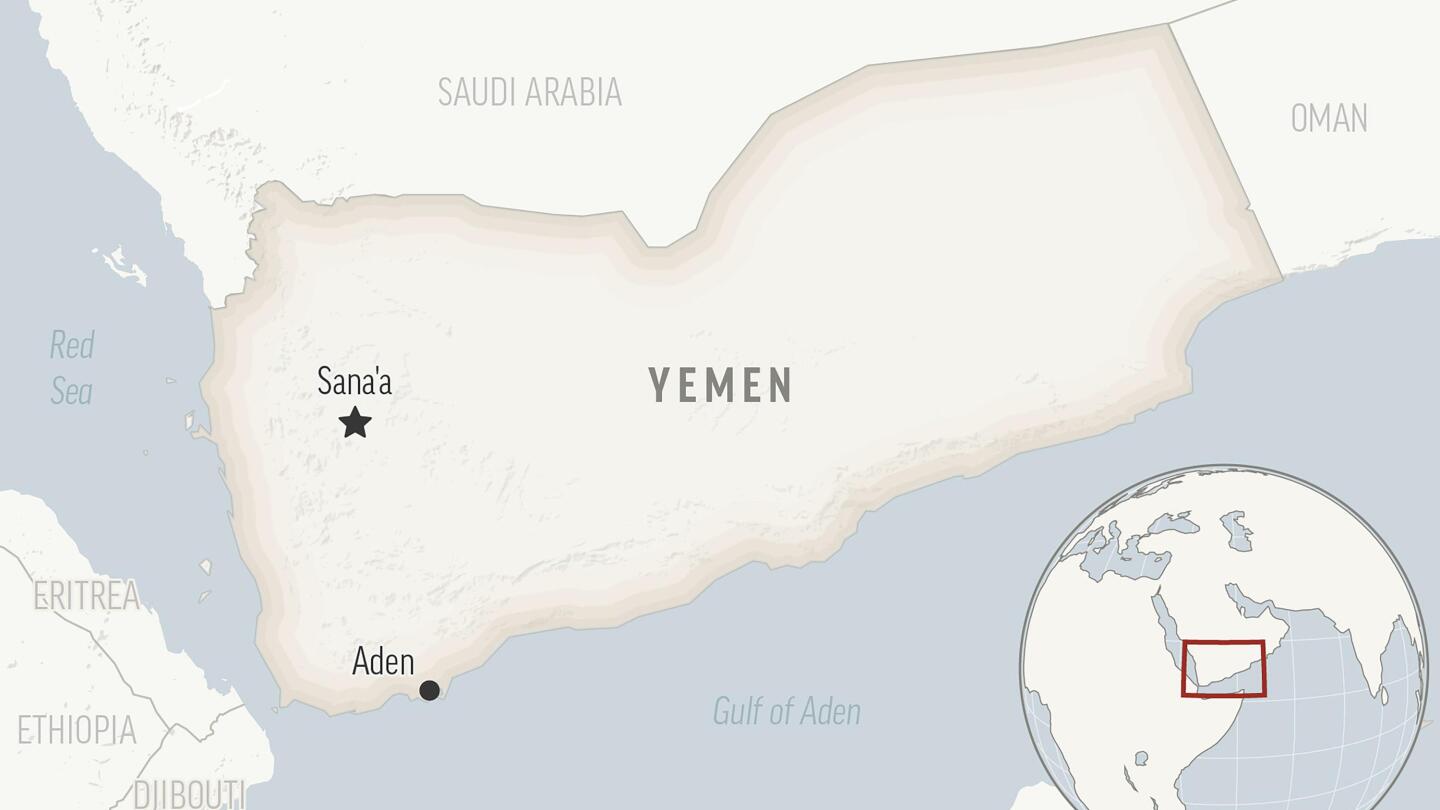
UN envoy encouraged by intensified efforts to end Yemen war
Associated Press
After months of calm, Yemen looks anxiously to the new year
Al Jazeera
UN envoy seeking renewed truce and path to peace in Yemen
Associated Press
UN chief urges Yemen’s warring parties to extend truce
Associated Press
UN chief urges Yemen rivals: No new violence and renew truce
Associated Press
UN envoy to seek longer, expanded truce in Yemen civil war
Associated Press
Yemen: A glimmer of hope in a devastating war
Al Jazeera
Yemen: Why is the world’s worst humanitarian crisis ignored?
Al Jazeera
Overshadowed by Ukraine war, Yemen on brink as pledges fall short
Al Jazeera
Yemen hunger crisis: $4.3bn needed, says UN
Al Jazeera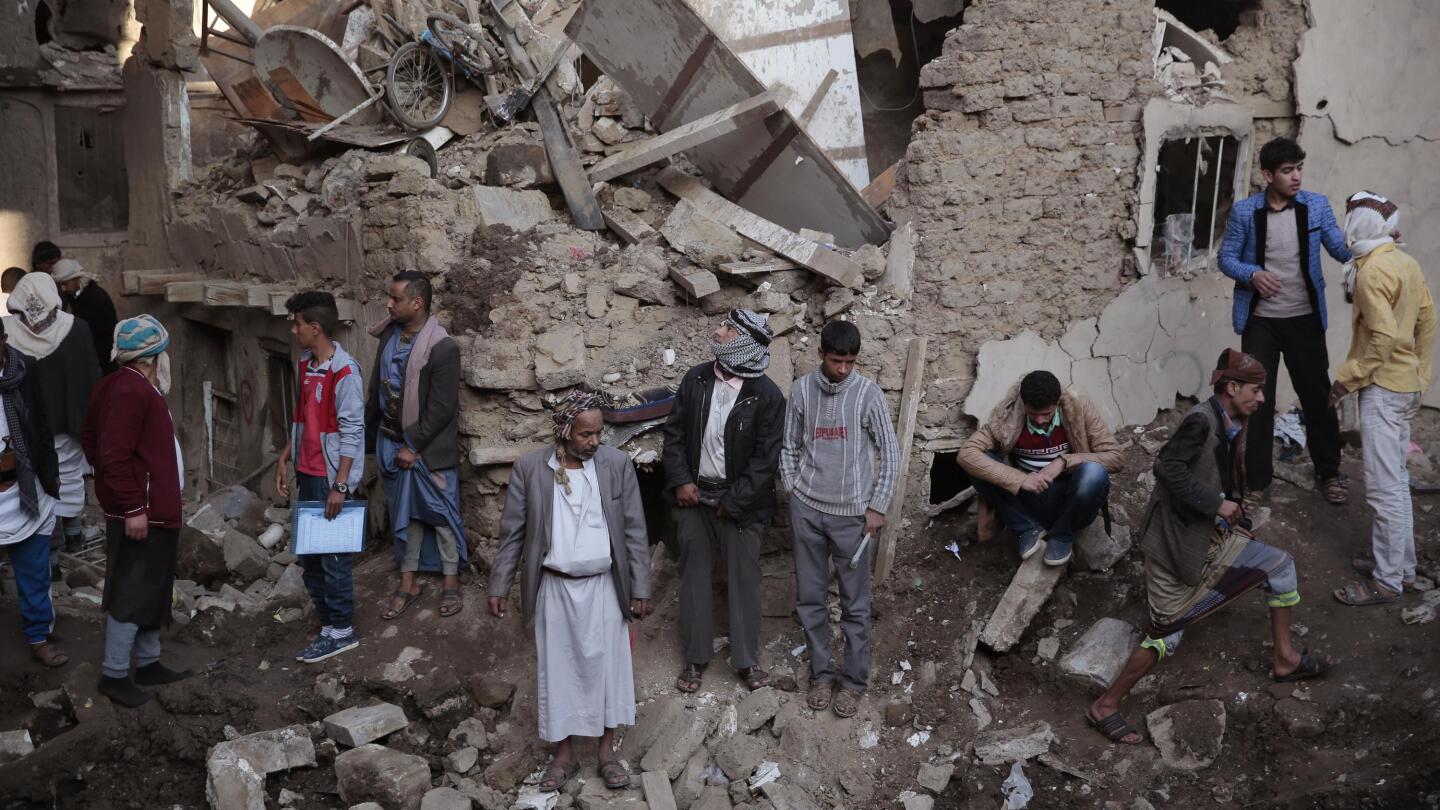
UN urges world not to forget 19 million hungry Yemenis
Associated Press
Beyond Ukraine, a devastating war in Yemen not many are talking about
India Today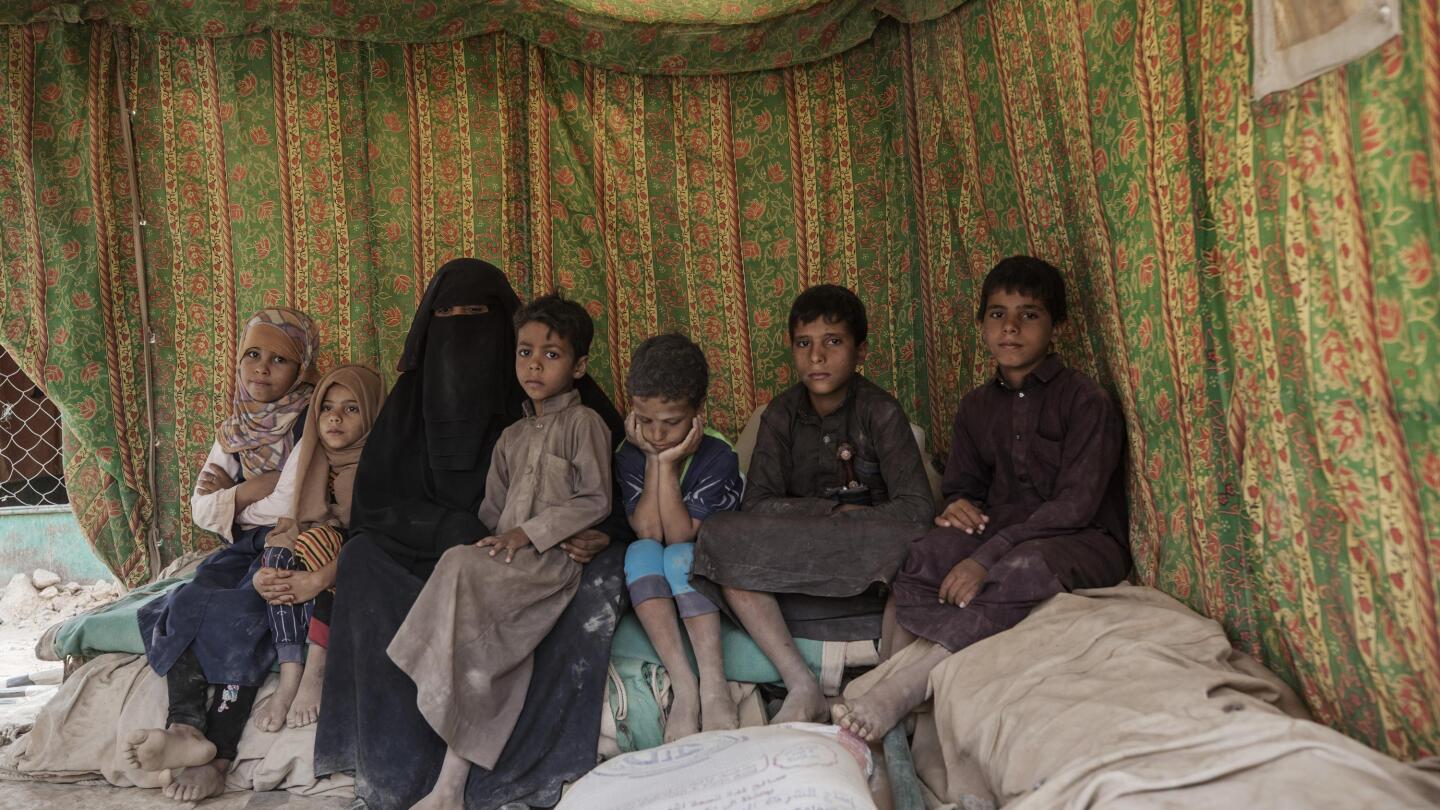
UN: Yemen war escalating, 8 million could lose aid in March
Associated Press
Eight million Yemenis could lose aid next month as war rages
Al Jazeera
Yemen: Intensifying war worsens world’s worst civilian crisis
Al Jazeera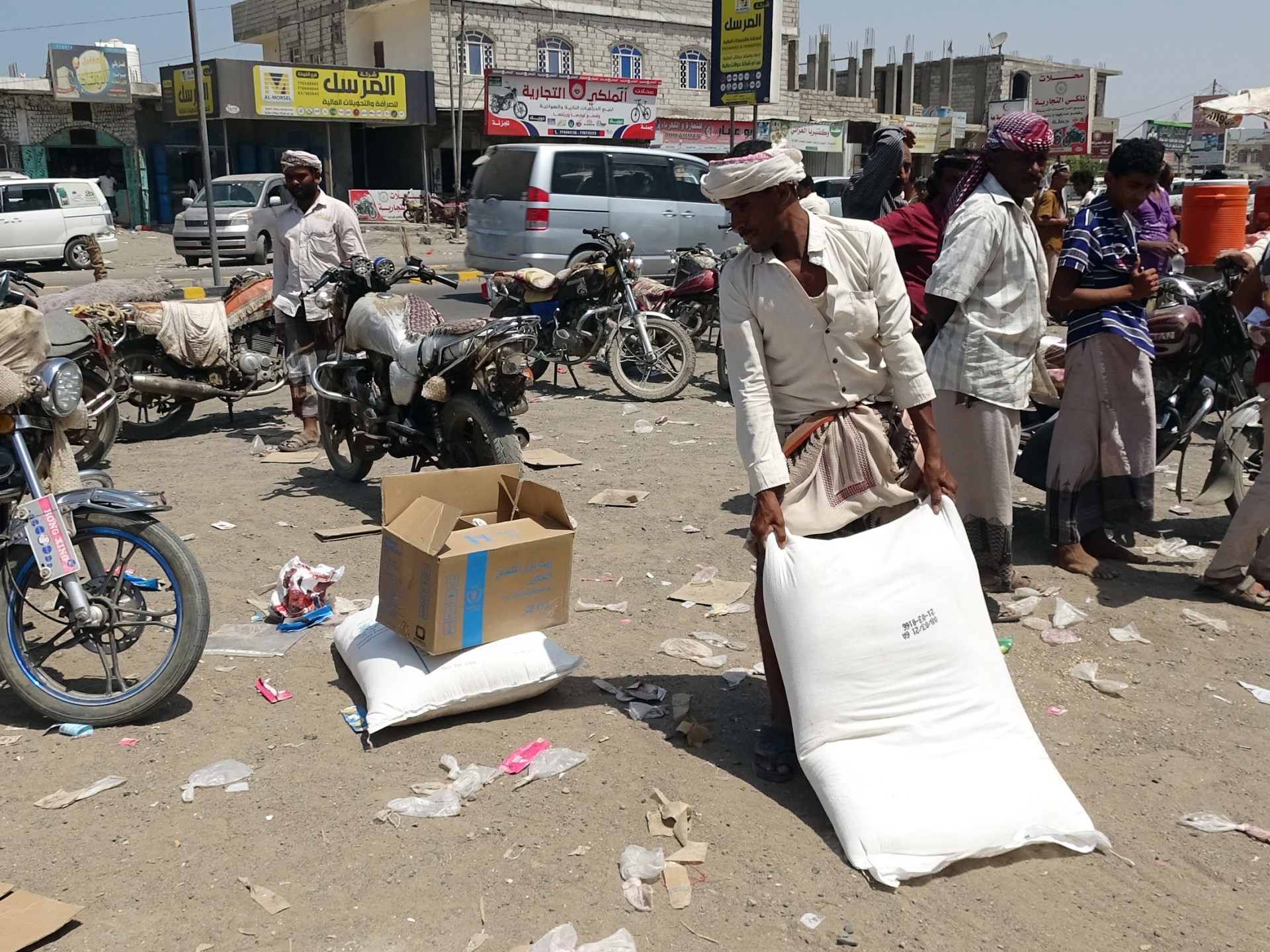
How the Yemen conflict flare-up affects its humanitarian crisis
Al Jazeera
UN says $3.9bn needed for help in Yemen as conflict escalates
Al Jazeera
UN to cut food aid to Yemen amid funding shortfall
Al Jazeera
Yemen’s humanitarian crisis growing as economy collapses: UN
Al Jazeera
UN: In war, 16 million Yemenis ‘marching’ toward starvation
Associated Press
UN: In war, 16 million Yemenis 'marching' toward starvation
The Independent
UN says 16 million Yemenis ‘marching towards starvation’
Al Jazeera
UN raises alarm on ‘dramatic deterioration’ in Yemen conflict
Al Jazeera
US Yemen envoy urges response on ceasefire plan with Houthis
Al Jazeera
U.N. warns of mass famine in Yemen ahead of donor conference
LA Times
Yemen famine could threaten opportunity for peace, UN warns
Al Jazeera
Is an end to Yemen’s war finally in sight?
Al Jazeera
UN, ICRC warn of famine over Houthis’ ‘terrorists’ designation
Al Jazeera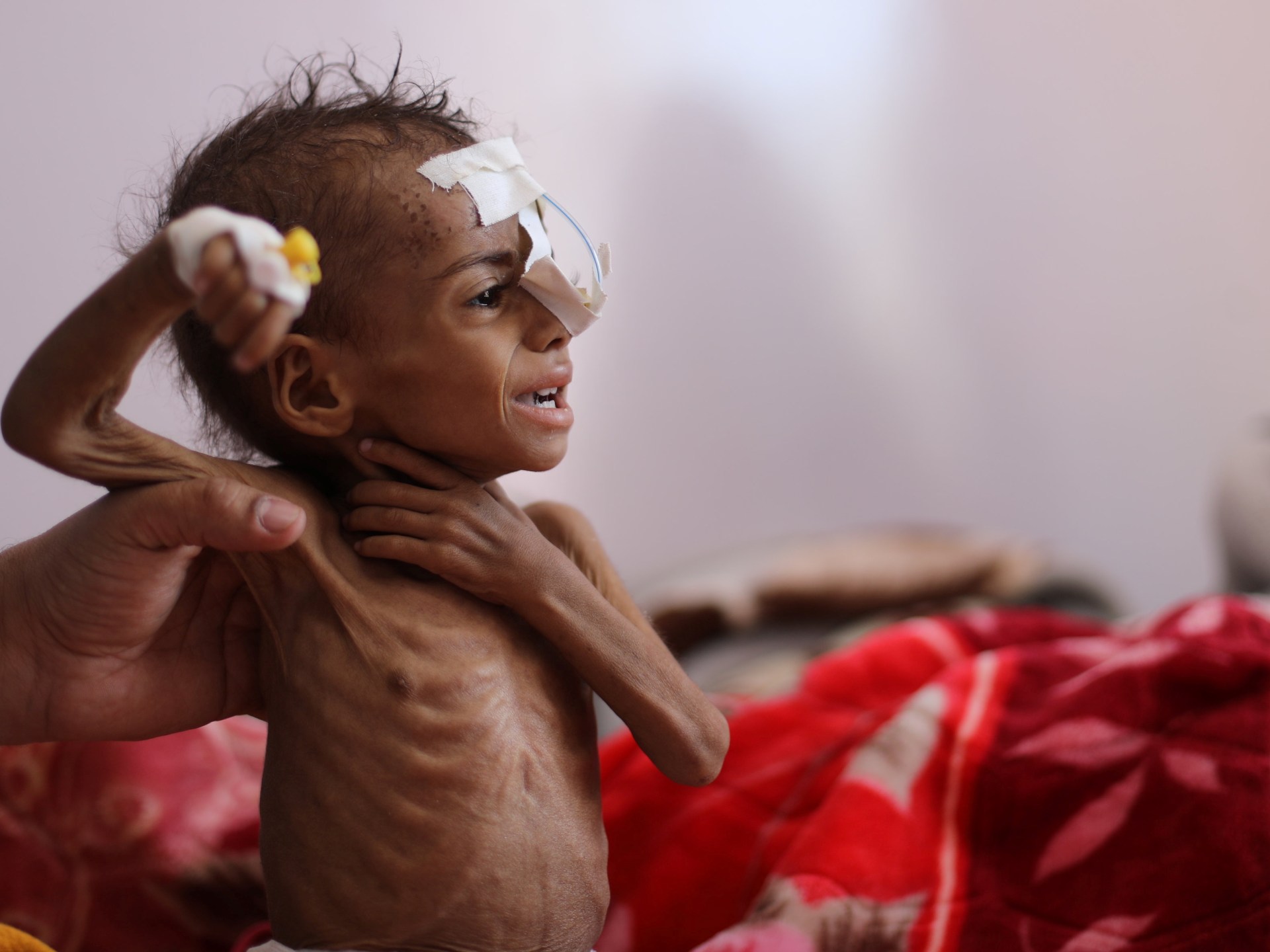
Yemen most at risk of humanitarian catastrophe in 2021: IRC
Al Jazeera
Yemen in ‘imminent danger’ of world’s worst famine in decades: UN
Al Jazeera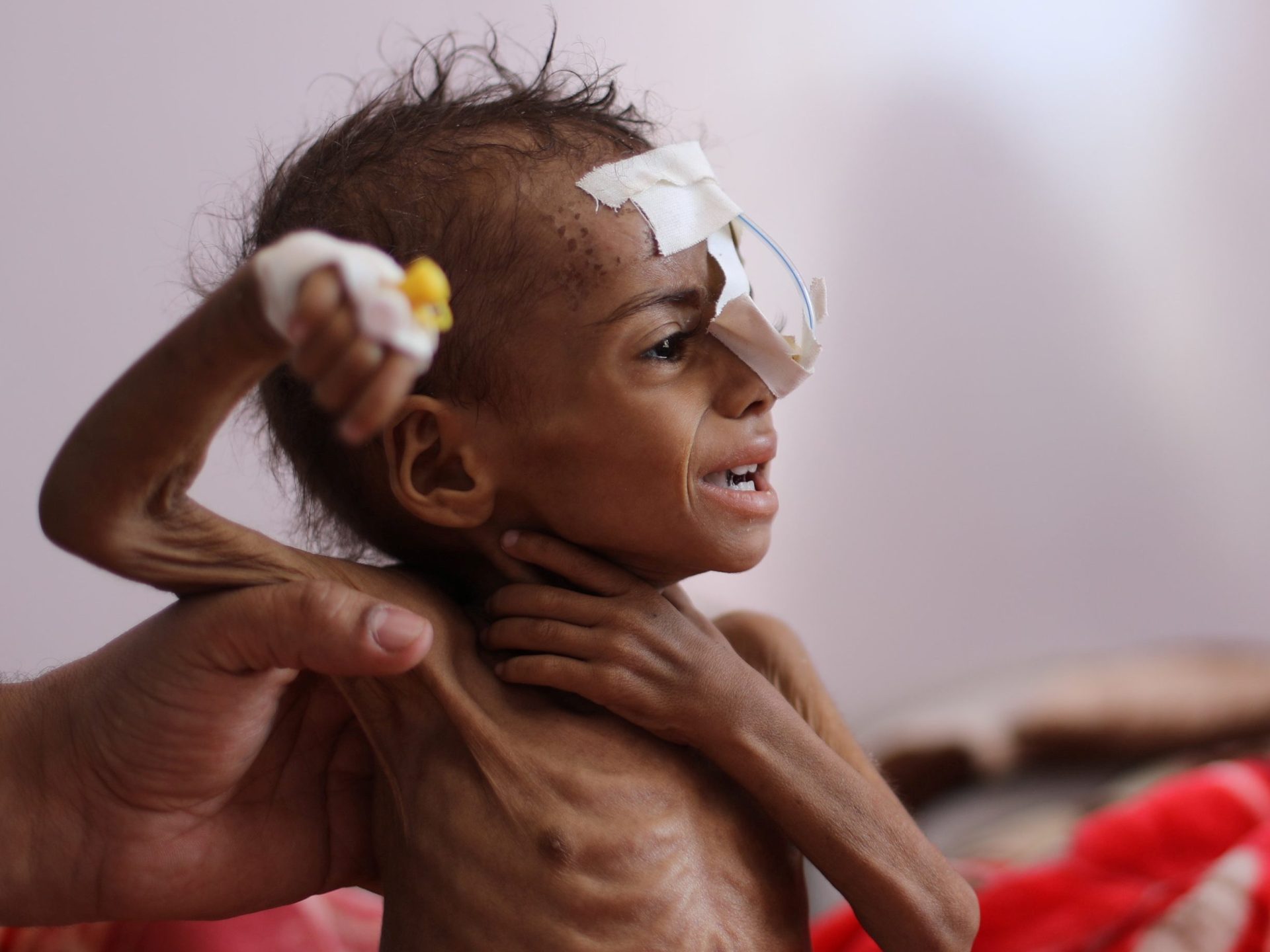
‘Countdown to catastrophe’ in Yemen as UN again warns of famine
Al JazeeraDiscover Related
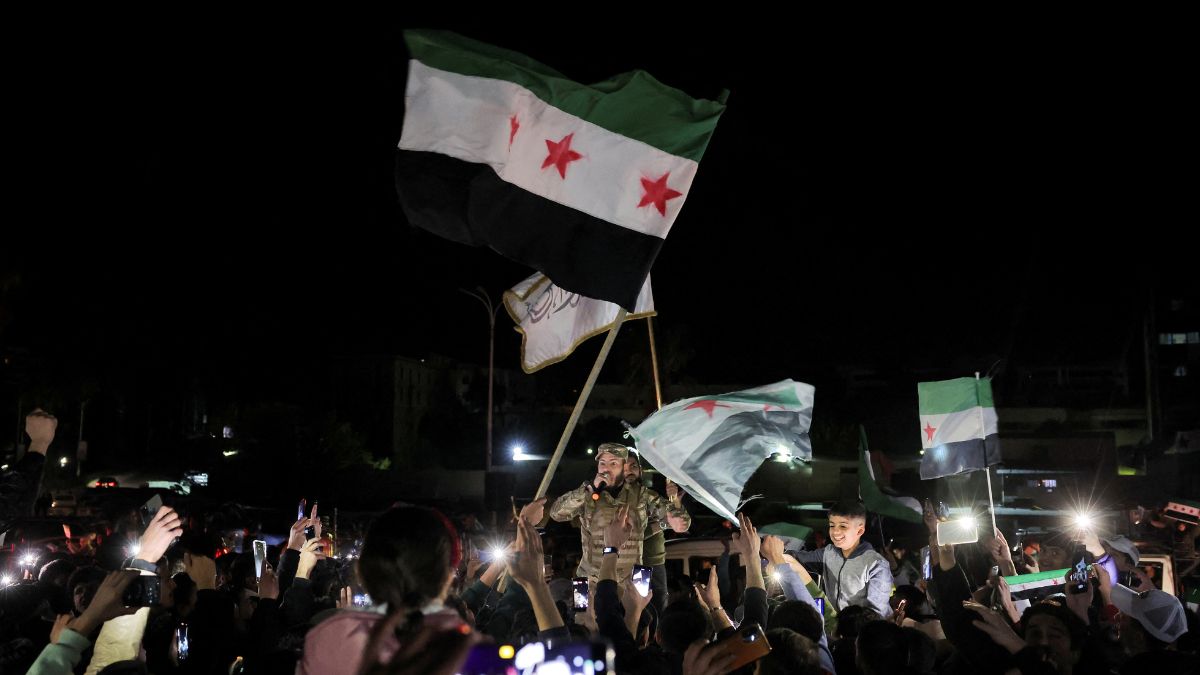)









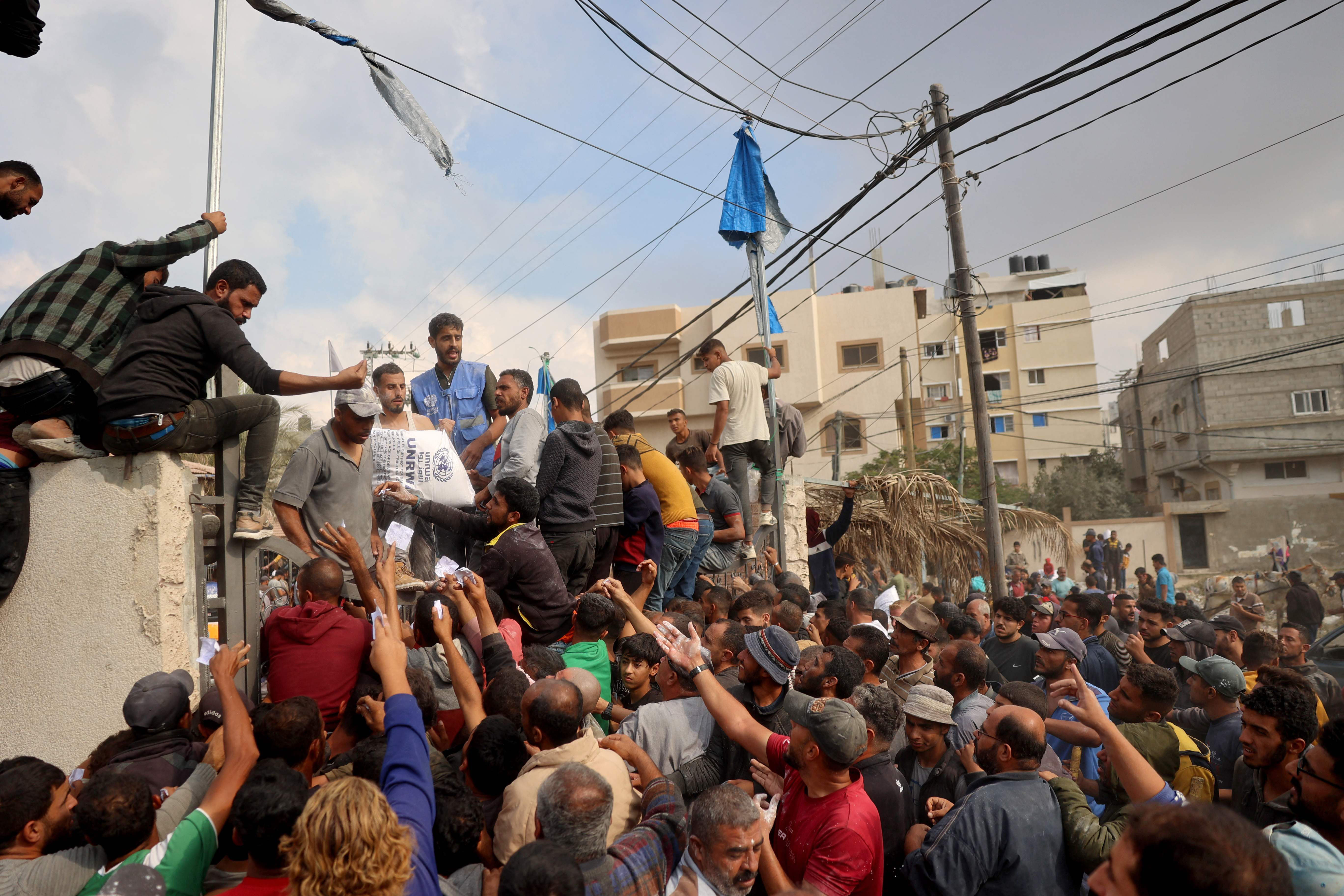
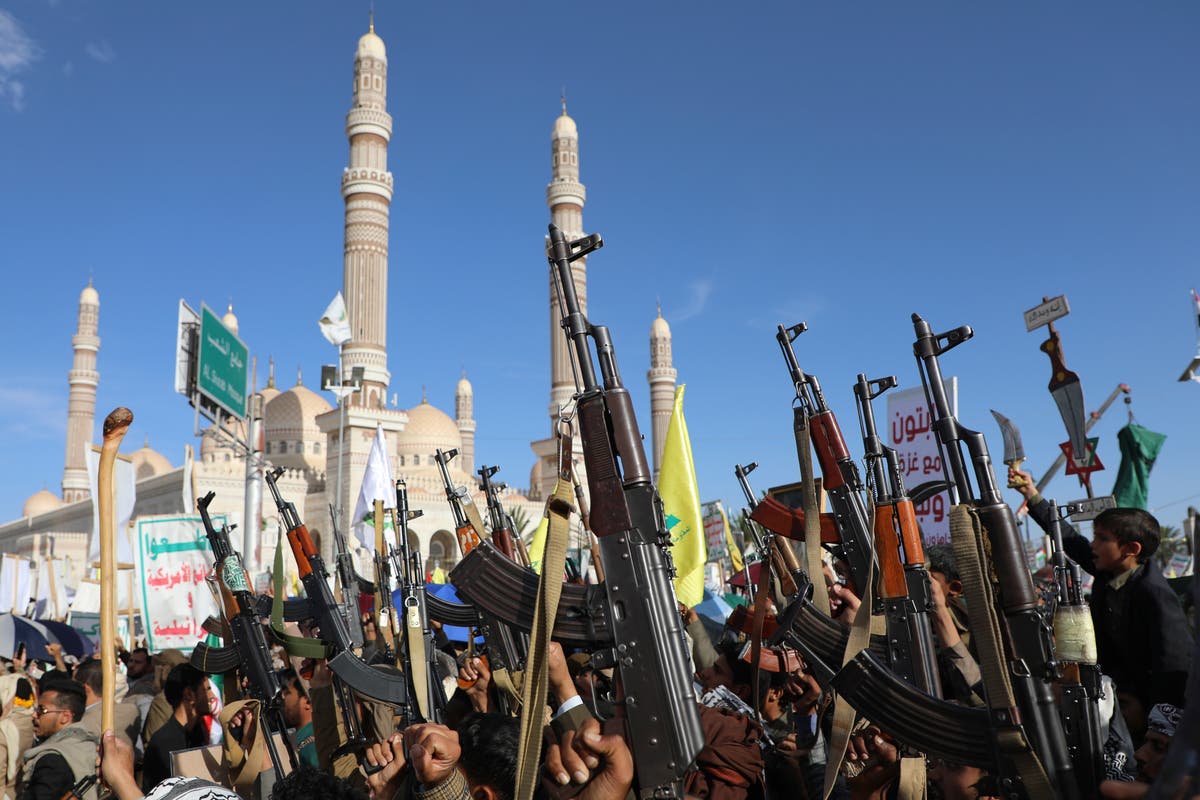

Famine Looms in Vulnerable Regions as Conflict and Climate Shocks Aggravate Food Insecurity
Associated Press

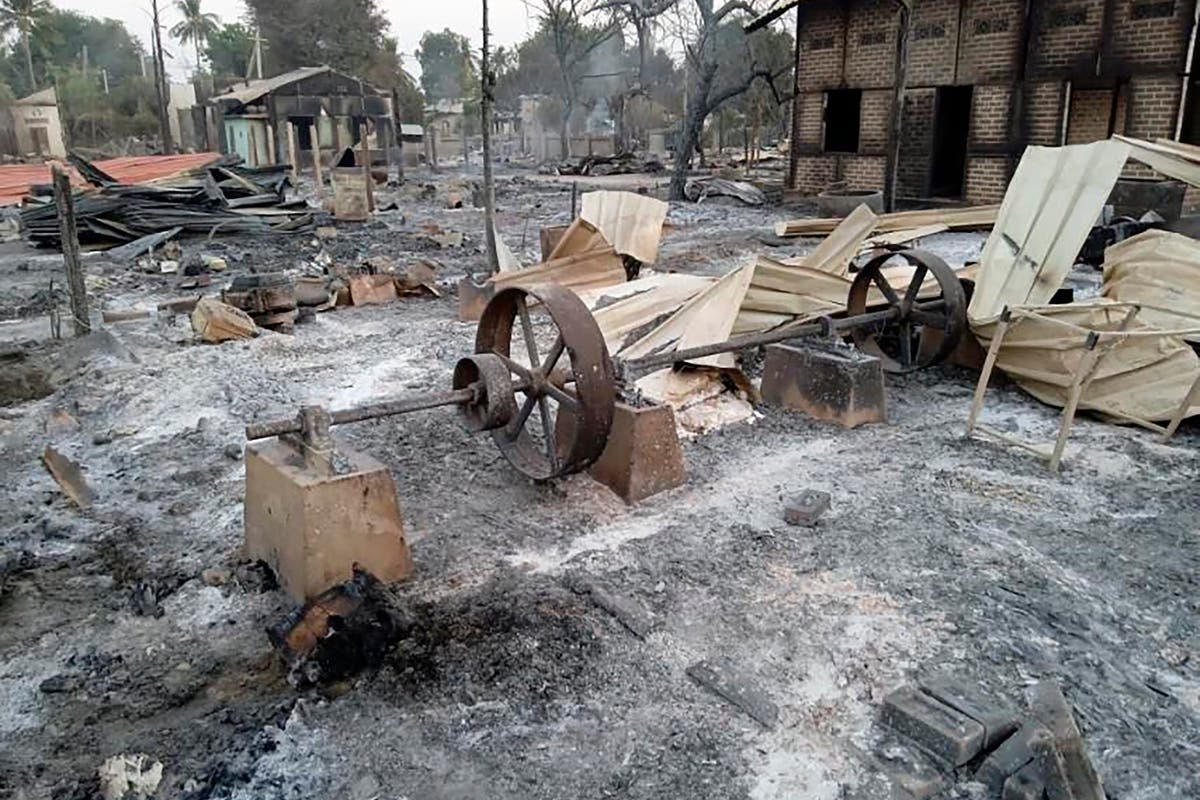

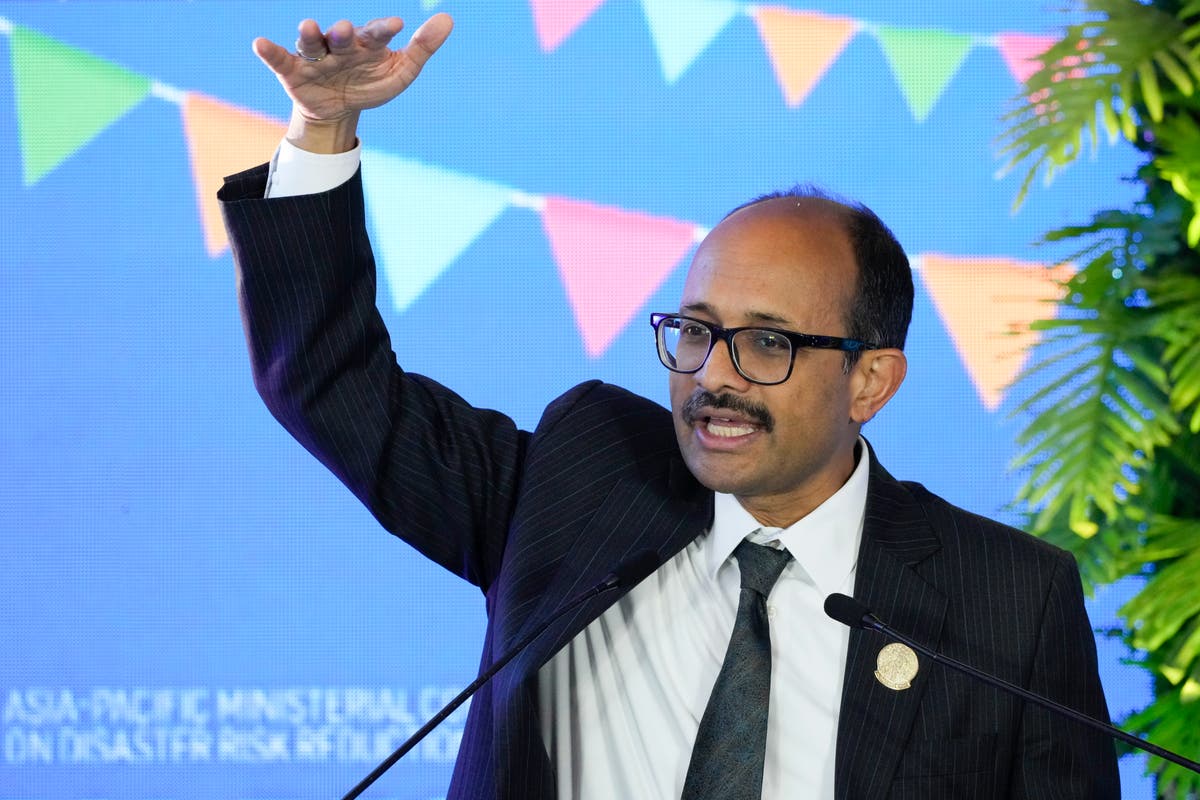



)
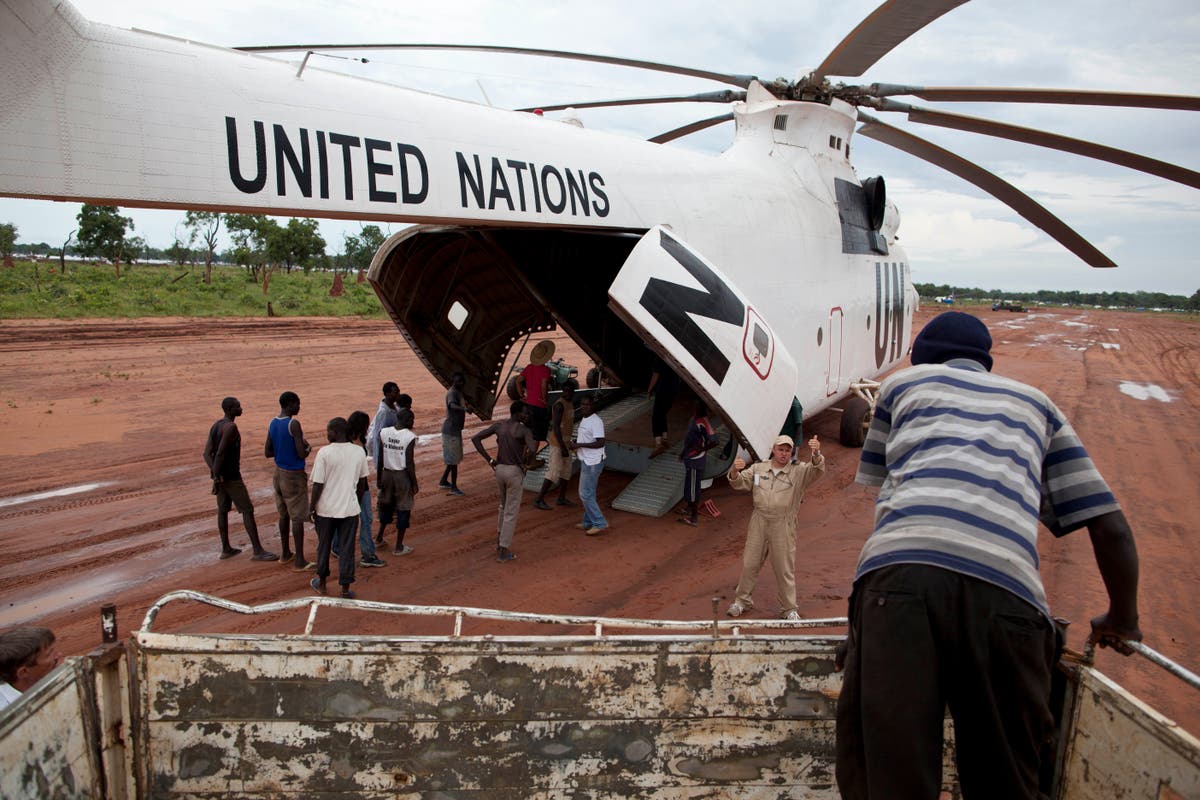


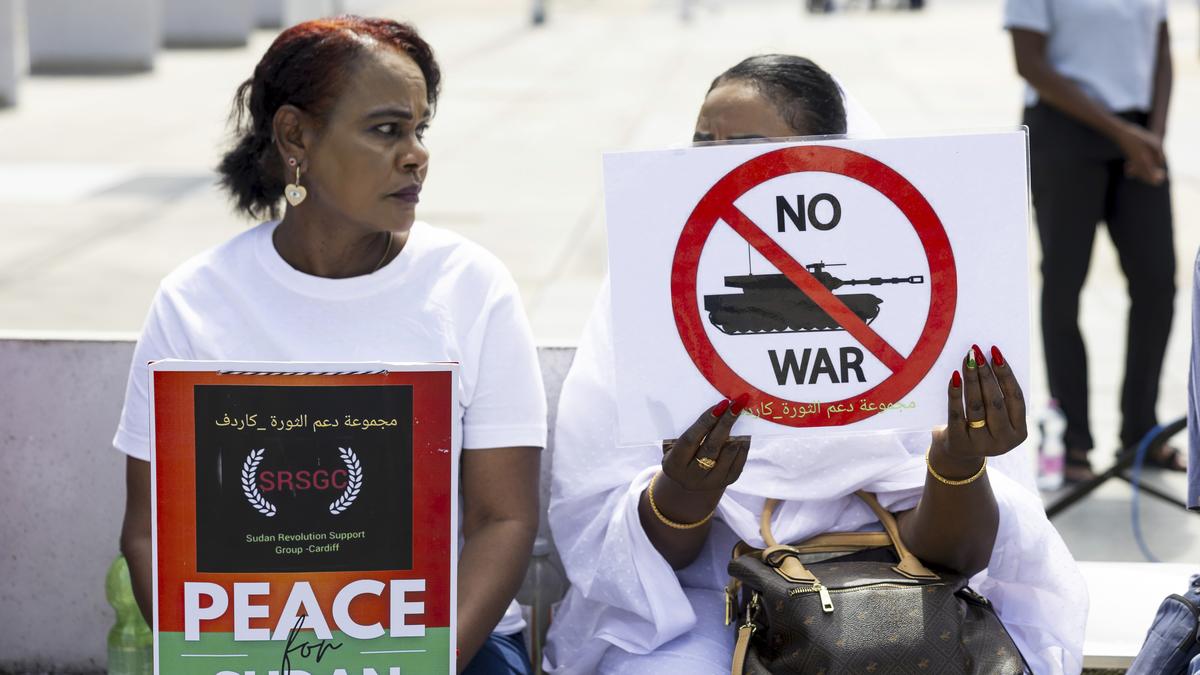






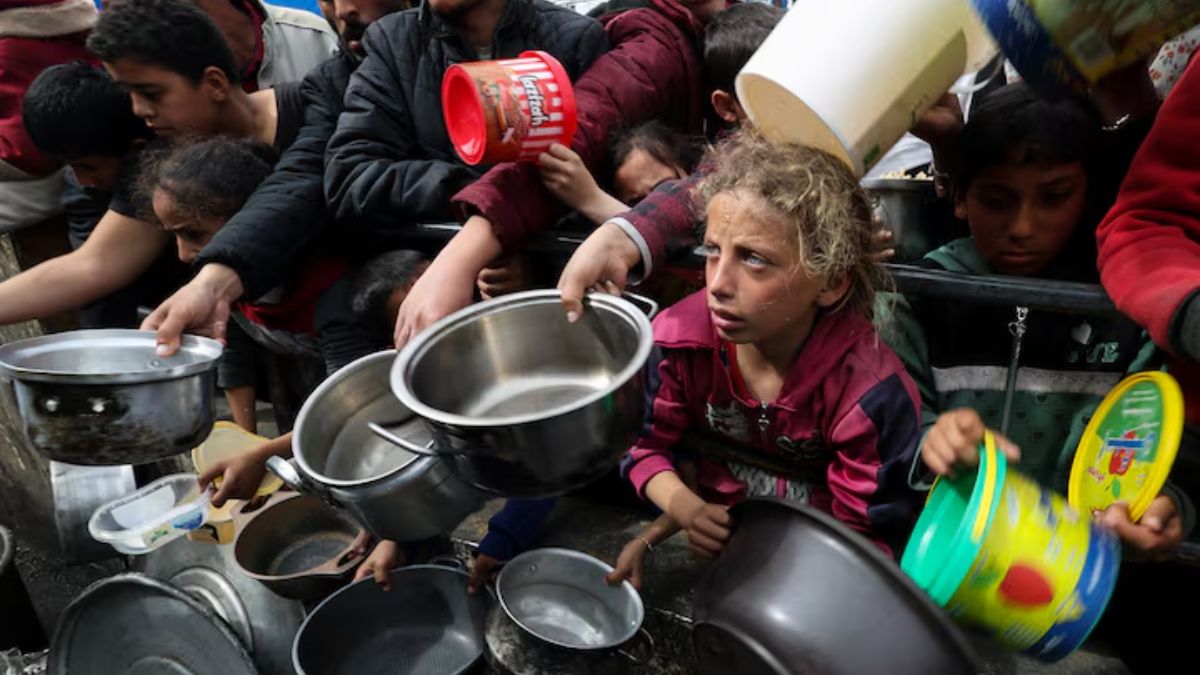)
